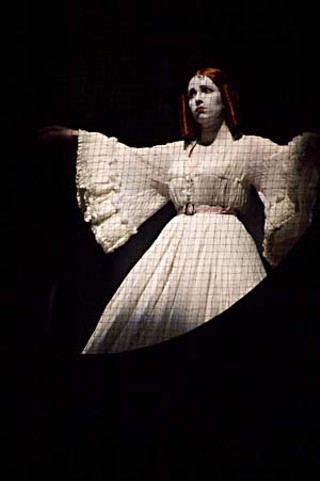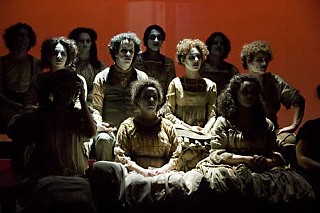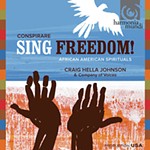Possibility of Failure
Pulitzer or not, composer David Lang won't play it safe
By Robert Faires, Fri., April 30, 2010

Don't think that composer David Lang isn't grateful for the Pulitzer Prize or for the increased presence of his work in concert halls. It's just that, he says, "I spent so many years thinking that I was a barbarian and nobody would ever play my music." Indeed, that feeling was what led Lang and composer pals Julia Wolfe and Michael Gordon to found the new music organization Bang on a Can in 1987, so composers like themselves, whose work didn't fit tidily into established categories and was likely to be ignored by the musical establishment, would have at least one place where their music could be played.
Getting his music played is not an issue for Lang these days. His work can be heard all over the place, as witnessed by the cluster of Lang compositions being presented in Austin this spring. The University of Texas' Department of Theatre & Dance is currently staging The Difficulty of Crossing a Field, the one-act opera that Lang and playwright Mac Wellman adapted from Ambrose Bierce's short story about a Southern planter who abruptly vanishes in his field. Thomas Burritt, whose Percussion Ensemble in UT's Butler School of Music performed Lang's "the so-called laws of nature" April 13, has programmed more Lang work for the New Music Ensemble concert May 4. And May 7-9, Grammy nominee Conspirare will let Austin hear the piece that earned Lang that Pulitzer, The Little Match Girl Passion, which movingly melds Hans Christian Andersen's "The Little Match Girl" with Bach's St. Matthew Passion. Lang was in Austin for the opening of The Difficulty of Crossing a Field and spoke with the Chronicle about adjusting to all this new attention and what's at the heart of his music.
Austin Chronicle: It's curious to have so many works of yours playing in Austin all at once.
David Lang: I think there's a way in which people feel safer playing my music now, which is a very curious thing, because it's never been one of my goals to be safe. But I feel like people feel I got performances and I won these prizes, so all of a sudden I'm a respectable member of society, and, you know, nothing irritates me more. I always imagined myself as a risky choice, so now I have to figure out how to make sure that the risk stays in the music.
AC: Does it feel like a special challenge for you?
DL: No, it feels like a perverse challenge for me. I'm getting offers now from very successful musicians to write the piece of contemporary music that's on every program, that is 20 minutes long and inoffensive and goes there because it's our duty to play new music, and that's the place where new music does the least damage. On the one hand, I am incredibly happy and flattered that I have been elevated to the point where I can have the Contemporary Music position. But I don't want that position. I want something else.
AC: In regard to The Difficulty of Crossing a Field and The Little Match Girl Passion, are there places of intersection in these two works for you?
DL: In my heart, I consider myself an opera composer. I've written a lot of operas, and I've written a lot of things which no one in their right mind would consider operas, [but] I do. I think because I've worked so much in the theatre, it's really gotten into every single thing that I do. And the thing I like about it is that it makes a role for live performance. Now, everything can be gotten immediately and perfectly on the Internet for free. Every piece of Beethoven that you ever wanted to hear, you can hear it perfectly recorded by the greatest musicians of all time at no cost 24 hours a day. So why would you go to a concert? The reason why you go is because the act of seeing people struggle to accomplish something is the doorway through which people translate someone else's experience into their own. The thing that happens in live performance, the theatre of it can't be replaced. This thinking about what a live performance is comes out of working on these operas.
The Difficulty of Crossing a Field takes a play which is in many ways complicated and difficult and dense and about serious things which it only hints at, and it encourages you as a theatregoer to do the work yourself, to figure out how to decode it. As a composer, my job is to stage it with music to make that decoding possible, to show how to get through that story, to actually say, "Here's this weird thing that you can't figure out, here's this ridiculous set-up, this story that this person has disappeared and everyone has a ridiculous supernatural explanation for why he disappeared, and no one will ever be proven right or wrong, and some people are happy about it and some people are mad, but you actually never find out what happened to this guy." So I looked at this story as an opportunity for me to identify with all these characters and to figure out just what the loss of this person means.
To me, the really fun thing about all of this is having the opportunity to find these complicated emotional situations and decode them so that someone can actually read what the emotion is. Or be able to read them enough so they can project their own emotion in. That's what I did with The Little Match Girl. I took these two things which should not have worked together, this incredibly religious, incredibly august and powerful, and historically meaningful text of Bach – one of the great pieces of all time – and this trite, sentimental, really emotionally manipulative, beautiful text by Hans Chrstian Andersen, and I collided them. And the weird thing for me is, I actually didn't know while I was working on it if it would work. I actually thought it was blasphemous and I would be seen as an evildoer.
AC: Cheapening the Passion story.

DL: Right. That devout Christians would picket my house. I took it very seriously, because I am a religious person and I respect the religious impulse in everyone. I tried to say, "Here's this story that has not been read religiously, and what would it be like if it was treated as a sacred text?" I didn't know if it would make that text more noble or if it would make the whole exercise really cheap.
AC: To me, it takes us back to what the original Passion story would have felt like if we didn't know the outcome. What the disciples experienced that week up until the Resurrection – that feeling of: "It all fell apart. What do we do now?"
DL: That's the whole thing about the story: We know how it ends. So from the beginning of the St. Matthew Passion or any Gospel or any church experience, you know the whole story. But the participants don't. But you can't actually set any of it to music as a kind of "gee whiz, what's happening next" story, because the story is so well-known. That's why, in some of the interviews about this, I referred to the Gospel story as like the Zapruder film. All you have to do is see one frame, and not the frame where Jackie is holding JFK or not the frame where the bullet goes in or not the frame where his head snaps back. You don't need to see any of the horrible frames. You just need to see the car. Because the story is so well-known to us that the horror is equally suffused through the whole experience. And that was the really weird thing for me: I had to find a text to replace the Gospel story that was as well-known. I tried other things – people you wouldn't know or stories that I found or obituaries in The New York Times – but I ended up thinking that it had to be a story that everybody knew; it had to have that same inevitability in it from the beginning, because everybody knows where the Jesus story goes.
AC: Back to live performance: One of the astonishing things to me about it is how I can be watching a play that I know very well and yet in that live space I can still get swept up in it and feel it as if I were seeing it for the first time.
DL: And in a way you are. Because you're seeing that play differently from the last time you saw it. You're a different person, and your place in life has changed.
It's really interesting being a person who loves live performance trying to figure out what the role of live performance is. In a way, it's the possibility of failure. Which you can't get on the Internet. All those performances are perfect and perfectly balanced, and you don't get the sense that something might happen. Yesterday, the percussionists played my piece for me, and one of the percussionist's music started slipping in a very, very hard section where he doesn't have the ability to take his eyes off what he's doing. And that became the narrative for that whole movement. You could feel everyone around me, the tension level went up. Which was really exciting. You know, when you go to a classical performance, and the violin soloist breaks a string in the middle of the performance and has to figure out how to adjust, that person gets a bigger hand because we like to project ourselves on stage. That's the beauty of it: We identify with that, and that's where the emotion comes from. We go: "That soloist? That's me standing up there. That's my emotion."
The Difficulty of Crossing a Field continues through May 2, Thursday & Friday, 8pm; Saturday, 2 & 8pm, and Sunday, 2pm, in the B. Iden Payne Theatre, Winship Drama Building, 23rd & San Jacinto. For more information, call 471-5793 or visit www.finearts.utexas.edu.
The New Music Ensemble will perform works by David Lang in its concert Tuesday, May 4, 7:30pm, in Bates Recital Hall, 2420 Robert Dedman Dr. For more information, call 471-5401 or visit www.music.utexas.edu.
The Little Match Girl Passion will be performed May 7-9, Friday & Saturday, 8pm; Sunday, 2:30pm, at St. Martin's Lutheran Church, 606 W. 15th. For more information, call 476-5775 or visit www.conspirare.org.











